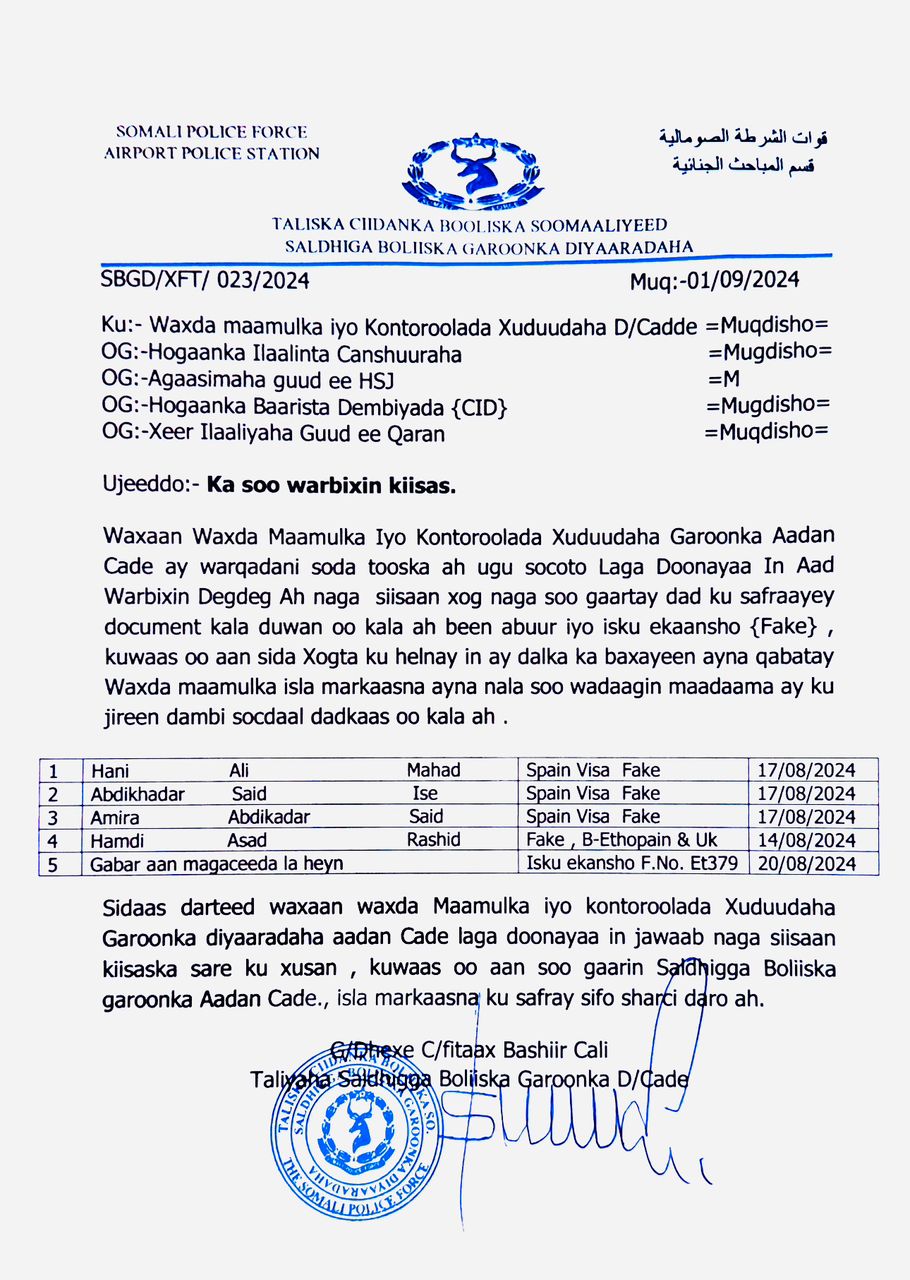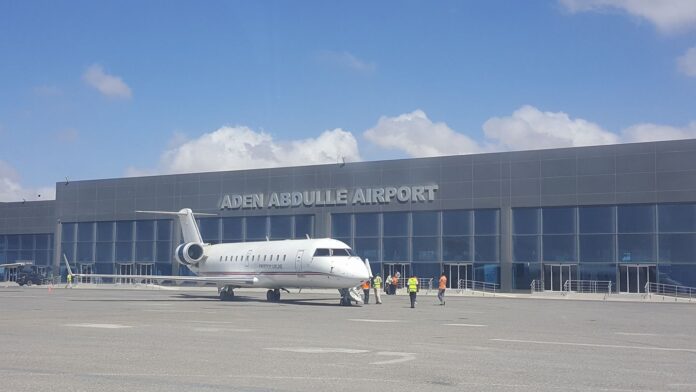MOGADISHU (KAAB TV) – A leaked police document has uncovered a sophisticated human trafficking network operating out of Mogadishu, Somalia, using forged Ethiopian and British passports, as well as fake Spanish visas, to smuggle people out of the country.
The network has been exploiting the vulnerabilities of the Aden Adde International Airport, continuing their operations with apparent impunity, and generating significant profits through their illicit activities.
The document, dated September 1, 2024, reveals that between August 14 and August 20, 2024, five individuals were successfully smuggled out of Mogadishu using counterfeit travel documents.

The forged Ethiopian and British passports, along with falsified Spanish visas, enabled these individuals to bypass immigration checks, highlighting serious lapses in the airport’s security measures.
Among those smuggled were Hani Ali Mahad, Abdikhadar Said Ise, Amira Abdikhadar Said, and Hamdi Asad Rashid. All four individuals used fake Spanish visas to facilitate their travel, while Hamdi Asad Rashid additionally used forged Ethiopian and British passports.
The document also indicates that at least two other individuals traveled using British passports suspected to have been stolen.
This latest revelation is part of a broader pattern of criminal activity involving human traffickers who have established themselves within various Somali government departments.
According to the leaked letter, senior officials within the Somali Immigration Department are implicated in the trafficking network, raising concerns about corruption and complicity at the highest levels of government.
The document’s leak has sparked outrage, as it points to a systemic failure to address the growing human trafficking crisis in Somalia.
The involvement of government officials in facilitating these crimes has undermined efforts to combat trafficking and protect vulnerable individuals from exploitation.
This is not the first time that human trafficking activities have been exposed in Somalia. Just days before the leak, another incident came to light in which three underage girls were nearly trafficked out of the country.
The girls were intercepted by their families just before they were about to board a plane to Hargeisa, the capital of Somaliland. The traffickers, who had promised the girls a better life in Europe, had planned to smuggle them to Libya via Ethiopia and Sudan.
This case, like many others, involved the complicity of police and immigration officials, further highlighting the extent of corruption within these institutions.
In another incident last month, traffickers were reported to have smuggled individuals through Somali police officers who were invited to an Interpol meeting in Lyon, France. Upon reaching France, the individuals then sneaked into other European countries.
The trafficking network preys on unsuspecting individuals, luring them with promises of jobs and a better life in Europe. However, once under the control of the traffickers, many victims are held hostage and subjected to ransom demands.
The traffickers exploit the desperation of their victims, who are often fleeing poverty, conflict, or persecution, and are willing to take significant risks in the hope of a better future.
The leaked police document has prompted calls for an urgent and comprehensive investigation into the human trafficking networks operating in Somalia. There are demands for accountability, particularly for those within the government who are suspected of facilitating or turning a blind eye to these activities.


